Knowledge Hub
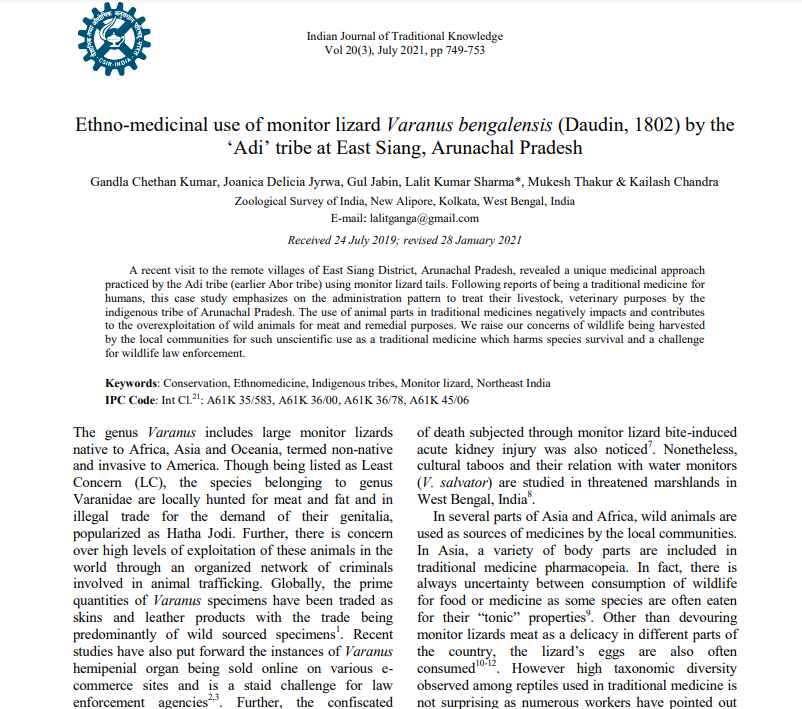
Ethno-Medicinal Use of Monitor Lizard Varanus bengalensis (Daudin, 1802) By The ‘Adi’ Tribe at East Siang, Arunachal Pradesh
2021
Author(s): Kumar GC, Jyrwa JD, Jabin G, Sharma LK,Thakur M, Chandra K
A recent visit to the remote villages of East Siang District, Arunachal Pradesh, revealed a unique medicinal approach practiced by the Adi tribe (earlier Abor tribe) using monitor lizard tails.
Ethnoveterinary Practices for Small Ruminants Followed by Rural Folks in Southern Odisha
2015
Author(s): Rautray AK, Sahoo R , Sardar KK, Patra RC , Sahoo A
A total of 23 species of herbal plants have been identified which were used either alone or in combination as traditional remedies for 24 different conditions/ diseases in livestock including important conditions like hoof infection, liver disorder and enteritis to emergency conditions like tympany/ bloat and hemorrhage.
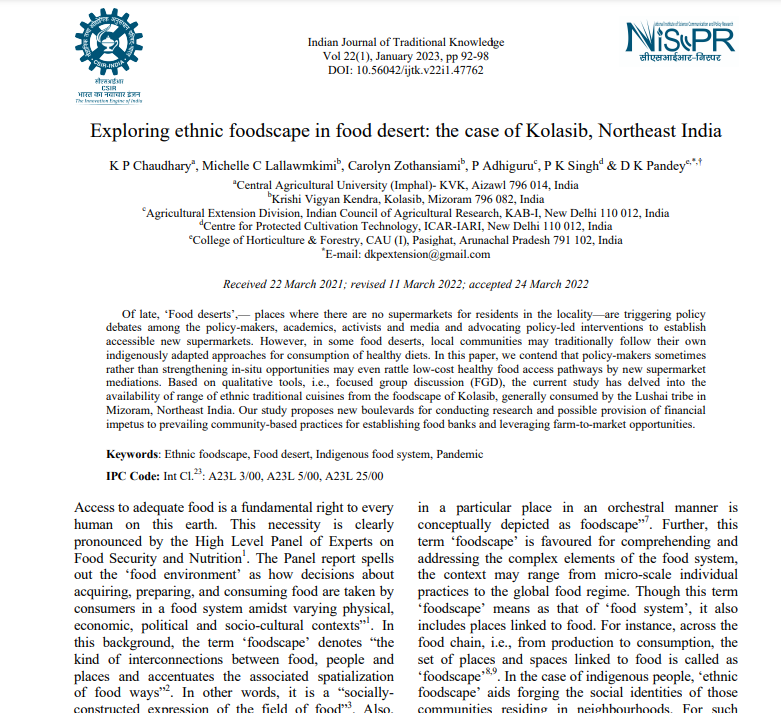
Exploring Ethnic Foodscape in Food Desert: The Case of Kolasib, Northeast India
2023
Author(s): Chaudhary KP , Lallawmkimi MC ,Zothansiami C , Adhiguru P ,Singh PK ,Pandey DK
In some food deserts, local communities may traditionally follow their own indigenously adapted approaches for consumption of healthy diets. In this paper, we contend that policy-makers sometimes rather than strengthening in-situ opportunities may even rattle low-cost healthy food access pathways by new supermarket mediations.
Wild Plants from Open Markets on both sides of the Bulgarian-Turkish Border
2015
Author(s): Dogan Y, Nedelcheva A
This study focuses on the diversity of wild plants found in open markets in urban areas on both sides of the Bulgarian-Turkish border, sold as food and plants for prevention, treatment and healing.
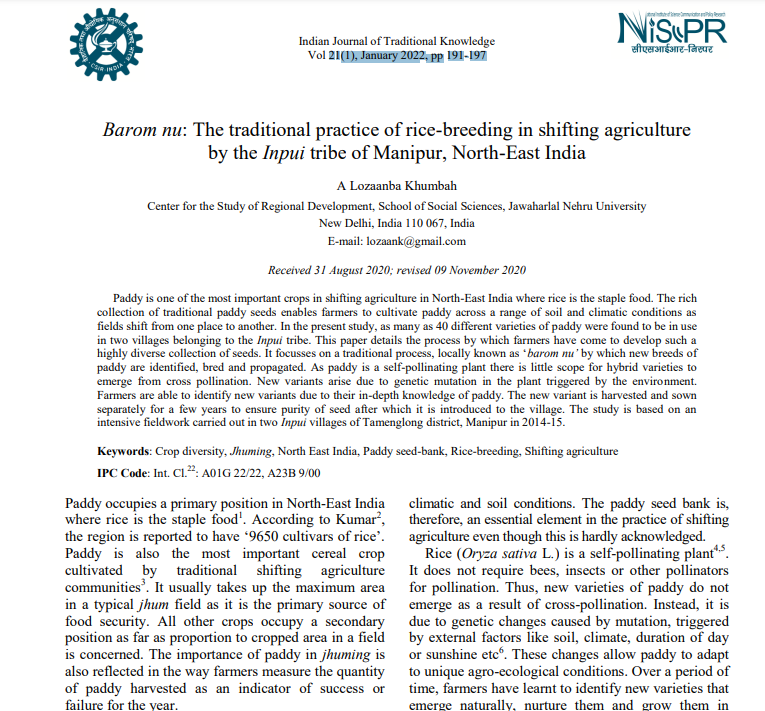
Barom nu: The Traditional Practice of Rice-Breeding in Shifting Agriculture By The Inpui Tribe of Manipur, North-East India
2022
Author(s): Khumbah AL
Paddy is one of the most important crops in shifting agriculture in North-East India where rice is the staple food. The rich collection of traditional paddy seeds enables farmers to cultivate paddy across a range of soil and climatic conditions as fields shift from one place to another.
Ethnoveterinary Medicines Used by Goat Keepers in Marwar Region of Rajasthan, India
2015
Author(s): Dudi A , Meena ML
This study shows that a variety of traditional practices were observed being followed for treatment of various ailments and diseases of the goat with the use of locally available material, herbs, etc.
Maasai People and Elephants: Values and Perceptions
2015
Author(s): Kioko J,Kiffner C , Ndibalema V , Hartnett E, Seefeld C
This study shows that elephant conservation programs should consider level of awareness, the values and perceptions of the local people.
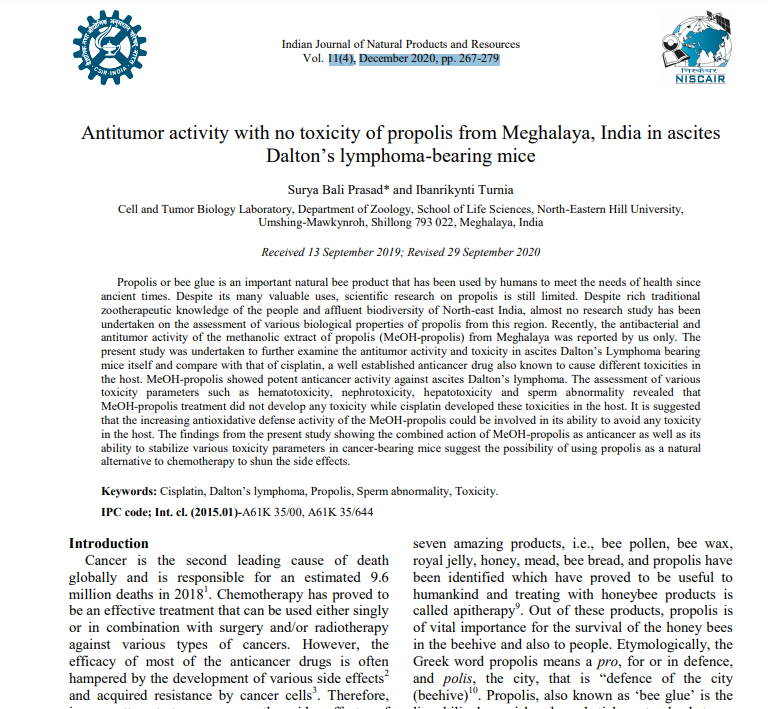
Antitumor Activity With no Toxicity of Propolis From Meghalaya, India in Ascites Dalton’s Lymphoma-Bearing Mice
2020
Author(s): Prasad SB, Turnia I
Propolis or bee glue is an important natural bee product that has been used by humans to meet the needs of health since ancient times. Despite its many valuable uses, scientific research on propolis is still limited.
Ethno-medico-botanical Knowledge of Tiptur taluk in Tumkur district of Karnataka, India
2015
Author(s): Achar KGS, Boosanur V, Shivanna MB
The present study indicated that the herbal healers have a fair knowledge and a considerable number of their formulations are new records.
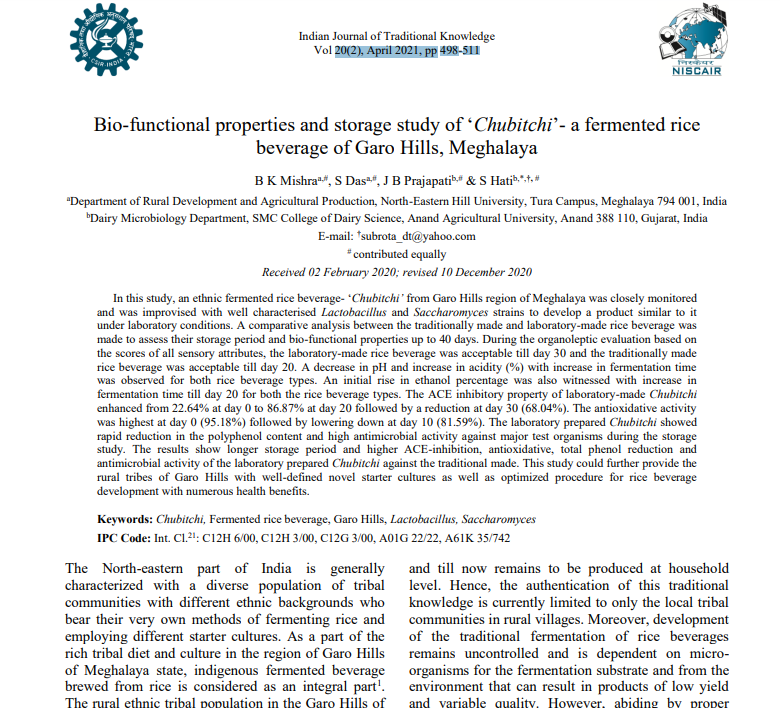
Bio-Functional Properties and Storage Study of ‘Chubitchi’- A Fermented Rice Beverage of Garo Hills, Meghalaya
2021
Author(s): Mishra BK, Das S,Prajapati JB,Hati S
In this study, an ethnic fermented rice beverage- ‘Chubitchi’ from Garo Hills region of Meghalaya was closely ¬¬¬-monitored and was improvised with well characterised Lactobacillus and Saccharomyces strains to develop a product similar to it under laboratory conditions.



